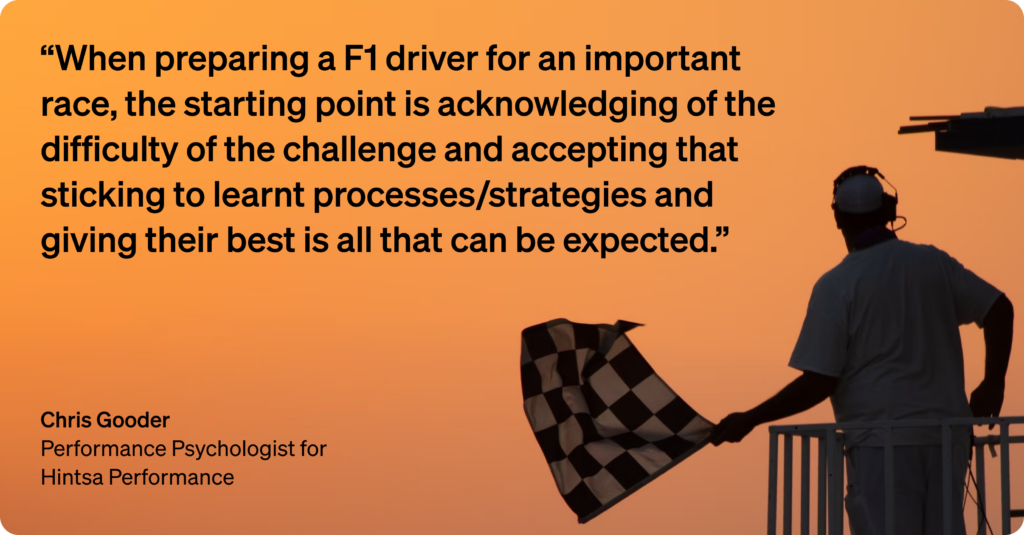Accelerate Your Cognitive Performance With These Four Key Considerations

Getting stuff done is hard. Work (and life in general!) can feel like it’s getting busier, more stressful and increasingly complex. On top of this, our capacity to deliver against these demands feels ever diminishing. No wonder then that the science of cognitive performance – addressing what it means to concentrate and focus for longer, remember more, make better decisions and problem solve more effectively – has become a hot topic in the world of performance psychology.
So, the focus shifts to how to improve this, and the answer is a simple one, right? Do more, work harder, put in the hours and be unrelenting in your drive and approach. Most of us will have read about or listened to a podcast in which an extraordinarily high achieving individual talks us through their daily schedule, a schedule that starts at an unimaginably early hour and continues long into the night with little or no time for breaks or periods of recovery. Some of you may have even attempted to replicate this, but my guess is that not only did it not help, but in fact hindered.
Doing more can result in achieving less, attempts at optimising are sub-optimal, and exhausting!
Formula 1 drivers compete in a sport that feels like it’s been specifically designed to test the limit of human performance under pressure. Working with them requires an in-depth look at how to improve cognitive performance, and in my experience the starting point is two-fold: understanding that blindly working harder and ‘trying more’ only depletes capacity and does more harm than good, and strategies put in place to improve this skill set need to be bespoke to the individual and refined over time.
With this in mind, what are the key considerations when building a strategy for cognitive performance?
1. Consider the nature of the task
Taking a smart approach to improving cognitive functioning begins with an assessment of the task you’re setting out to achieve. For example, passive tasks like reading text, listening to a podcast or following a lecture require higher levels of alertness compared to active tasks in which you’re interacting with the material or receiving immediate feedback.
Information processed in active tasks are mentally coded more automatically and therefore require lower levels of conscious awareness – it can be helpful to assess the time of the day in which you feel most alert and make sure more passive tasks are assigned to these slots. Beware however of the impact of caffeine on this decision, studies have shown that it can have a positive impact on cognitive performance but only in simple tasks, and can in fact increase error rates in more complex tasks, sometimes a strong coffee is not the answer!
2. Make sure your battery is topped up
Imagine that you have an internal battery that needs charging, much like the mobile phone or laptop you’ll be doing your work on. Now imagine that the more depleted that battery of yours is, the more of a negative impact it will have on your ability to perform cognitively.
One of the biggest drainers of your internal battery is a lack of quality sleep, research has shown a clear link between the effects of sleep deprivation on alertness and cognitive abilities. Further to this, sleep has also been shown to play a key role in the processing and consolidation of learnt information, and as such should always be a top priority when you need to perform at your best.
Unsurprisingly, stress management is also key. A state of high stress is both cognitively and physically draining and therefore it comes as no surprise that the impact acute or chronic stress will have on your ability to get things done to a high level is not a good one!
To manage stress effectively over time, a preventative and proactive approach grounded in a deep sense of self awareness is required. If you’re sat at your desk now with work continuing to pile up and that familiar feeling of rising tension, research some non-sleep, deep rest techniques like meditation or breathing and give them a go. They’ve been shown to both raise alertness and reduce levels of stress, both of which are very helpful in helping you get through that to-do list.
Another way of managing stress is to allow for breaks in the working day, presenting the perfect opportunity to get outside and connect with nature or do some exercise. Both of these have not only been proven to have a positive impact on mood markers and emotional resilience – important factors in the management of stress – but they also positively impact working memory, levels of attention and processing speed.
3. Create a bespoke working environment
Take a moment to think about where you do your best work or where you have your best ideas. Setting up your most effective working environment will involve you being a little creative because individual preferences here are important. The research reflects the anecdotal evidence on this – while some prefer an entirely quiet and secluded space to do their best work, others operate better with a little background noise or music.
In terms of generic rules, minimising more significant distractions is important. That means closing your email app completely so you don’t have a constant barrage of new (and potentially stress inducing!) information popping up incessantly, and turning your phone onto silent mode, or off completely – you can’t scroll through social media if your phone is off limits!
4. Have a plan for work
The trap that most people fall into (including myself) is that we sit at the desk and blindly begin working with no real plan as to how we’re going to most effectively approach the mountain of things we need to get done. Prioritize what needs completing and work your way through it one task at a time, multitasking is a myth!
Many of you will have read or researched the work/break ratio that produces the best results, consistent advice suggests that work blocks of anything between 30-50 minutes interspersed by short breaks allows for a higher level of cognitive performance. If possible, a longer break allowing for true rest and downtime will further aid the consolidation and coding process of information after a maximum of 1.5 hours of deep work.

Finally, go easy on yourself
Perhaps a good way to sum this up is to end where we began, a reminder that getting this right is really hard, so go easy on yourself! When preparing a F1 driver for an important race in which they need to cognitively perform in a way you or I may struggle to even comprehend, the starting point is acknowledging of the difficulty of the challenge and accepting that sticking to learnt processes/strategies and giving their best is all that can be expected.
The idea of trying harder or doing more is a fallacy. This message applies to you too, don’t simply attempt to ‘work harder’ and remember that perfection (or even optimisation) doesn’t exist. The work lies in refining your strategies, learning lessons as you go and doing the best you can.



